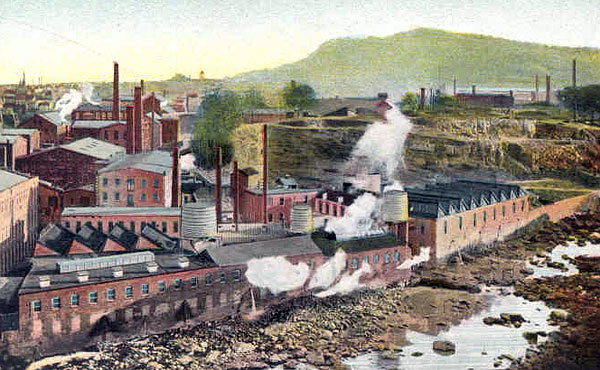The Silk Mills

The Jewish Community, both as laborers and entrepreneurs, made a significant contribution to the thriving silk industry of Paterson.
Large-scale Jewish immigration to Paterson began after 1900, with the arrival of Jewish textile workers from Lodz and Bialystok. By 1913, close to 5,000 Jewish men and women worked in the silk industry, with the greatest number concentrated in broad-silk weaving. A small number of mills were owned or managed by Jews. When a bitter strike erupted, the Jewish textile workers joined other ethnic workers to fight against the 4-loom system, the fine system, and the blacklist. Their dignity and their standard of living were at stake. They had come to the new world to escape the evils of similar systems in "the old country." (Click here for more information about the silk strike of 1913.)
In Paterson they continued the struggle. Workers and owners found themselves on opposite sides. However, despite the climate of class struggle, a sense of Jewishness was strong. From this era, the importance of helping each other, of learning, of pursuing Jewish culture and brotherhood survived.
The Purity Cooperative
In 1917 after the bitter silk strike of 1913, the Jewish working People formed a cooperative bakery on Tyler Street selling shares at $5 per share. At one time there were three bakeries, which sold baked goods of all kinds. Prices were reasonable and quality and
cleanliness were paramount.
Well-supported by the community, the stores were open to the public. They became part of the life of the city and were a unifying force in the Jewish working community. A butcher's cooperative also existed. Supervision of Kashruth was observed by a board.
In 1965, the cooperatives were dissolved; each shareholder was paid $25 per share. The shareholders decided to turn the money back be used in the community.
[To be completed at a later date.]

